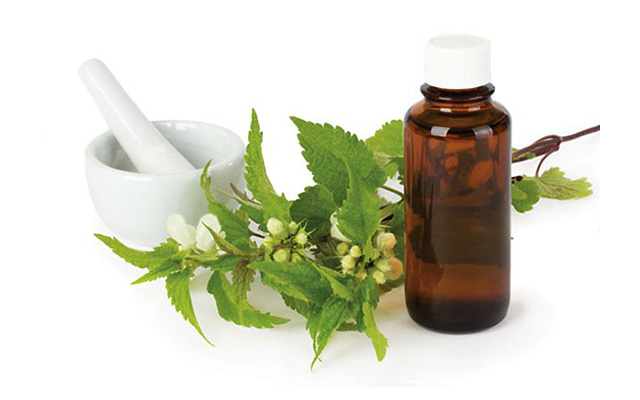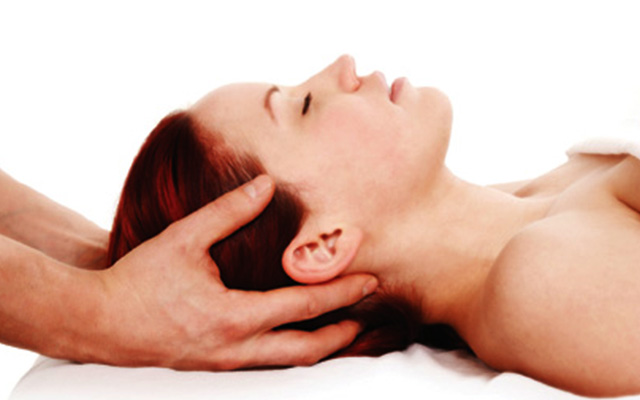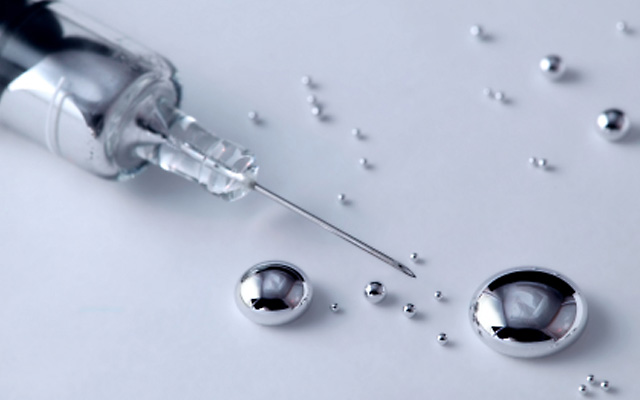Services

Naturopathic Medicine
Naturopathic Medicine is a unique and distinct system of health care that emphasizes the use of prevention and natural therapeutics. The doctors who practice naturopathic medicine, called naturopathic doctors (NDs), are trained to serve as primary care general practitioners who are experts in the prevention, diagnosis, management, and treatment of both acute and chronic health conditions.
Naturopathic doctors use a variety of natural and non-invasive therapies, including clinical nutrition, homeopathy, botanical medicine, hydrotherapy, physical medicine, and counseling. Naturopathic treatments are effective in treating a wide variety of conditions without the need for additional intervention.
A naturopathic doctor (ND) is a licensed physician who has graduated from an accredited four-year, post-graduate, residential naturopathic medical school, and has been board certified.
The training consists of comprehensive study of the conventional medical sciences, including anatomy, physiology, pathology, microbiology, immunology, clinical and physical diagnosis, laboratory diagnosis, cardiology, gastroenterology, gynecology, etc, as well as detailed study of a wide variety of natural therapies.
The aim of the ND is not only to control symptoms of disease, but to address and treat the true causes of disease.
NDs try to avoid the use of prescription drugs whenever possible, in order to minimize harmful side-effects and the unnecessary strain that drugs can place on the body.
They prefer instead, to focus on overall health through preventative medicine, improvement of lifestyle, and by addressing both the physical symptoms as well as mental well-being. Moreover, the ND places great importance on patient education, encouraging patients to take control of their own health. The primary goal of the ND is to recognize and encourage the inherent self-healing power of the individual.

Integrative Medicine
Integrative Medicine is a healing oriented discipline that takes account of the whole person, including all aspects of lifestyle. It emphasizes the therapeutic relationship between practitioner and client, is informed by evidence, and makes use of all appropriate therapies.
Integrative Medicine uses evidence-based disciplines in the various fields of natural medicine coupled with conventional medical therapies.
- All factors that influence health, wellness, and disease are taken into consideration, including mind, spirit, and community, as well as the body.
- The Client and practitioner are partners in the healing process.
- Effective interventions that are natural and less invasive should be used whenever possible.
- Appropriate use of both conventional and alternative methods facilitates the body's innate healing response.
- Alongside the concept of treatment, the broader concepts of health promotion and the prevention of illness are paramount.
- Integrative Medicine neither rejects conventional medicine nor accepts alternative therapies uncritically.
- Practitioners of Integrative Medicine should exemplify its principles and commit themselves to self-exploration and self-development.
- Good medicine is based in good science. It is inquiry-driven and open to new paradigms.

Craniosacral Treatment / Lymph Drainage / Visceral Manipulation
The craniosacral area of the body (brain and spinal cord area) consists of the membrane and cerebrospinal fluid that protects the brain and the spinal cord.
If the balance of the craniosacral system collapses, it could potentially cause any number of sensory and motor or neurological issues. Such problems could lead to chronic pain, fatigue, strained eyes, muscle weakness, learning disorders and other health issues.
Receiving treatment can improve emotional well-being and aid stress management, both of which are essential to general health.
.Craniosacral treatment reduces the stress to the nerve system and enables the body's original natural healing power.
The term "viscera" refers to the body's internal organs, such as the liver, kidneys, stomach, and intestines.
Positioning is crucial to the optimal functioning of the body's viscera.
When they are displaced by car accidents, sickness, or improper posture, the displacement begins to affect other organs, muscles, fascia (tissue), and bone.
Visceral distortion can initiate the first stages of chronic pain, abdominal cramping, infertility, or various types of digestive disorders and sickness.
Through visceral manipulation, the internal organs can be adjusted to their proper position, thereby relieving any problems caused by displacement.
The proper functioning of the lymphatic system is critical to our body's ability to detoxify, regenerate tissue, metabolize fat, and maintain a healthy immune system.
Stagnation of the lymph system may trigger the first stage of a variety of diseases such as edema, allergies, fibromyalgia, skin disorders, and accelerated aging.
Lymph Drainage treatment has been scientifically proven to alleviate lymph related symptoms and disorders.

Dietary Counseling
As a nation, we are increasingly eating more processed foods. Our supermarkets are full of convenient packaged foods that appeal to our taste buds, but compromise our nutrition. Because most of these foods' natural nutrients are removed in the refining process, we need to get them elsewhere.
Nor is our food the same as it was 20 years ago. Nutrients in the soil have been depleted, so food grown in that soil has fewer nutrients.
Chemicals (pesticides, herbicides, antibiotics, hormones and more) are increasingly used in raising both plants and animals.
It is easy to fall into the pattern of eating fast, convenient, prepared food, especially in our often frenetic lives.
But we are not nurturing ourselves by doing so. Our Standard American Diet lacks nutrients and relies heavily on processed foods that include artificial color, additives, flavorings, and chemically-altered fats and sweeteners.
We tend to eat for convenience and speed, not health and pleasure.
So there are many reasons why we might want to pay attention to what we eat. We especially need to pay attention when we are sick so we can help our bodies get the nutrients we need to heal. There are many health benefits if we look at food as medicine.

Vitamin Mineral Drip Therapy
Vitamin Mineral Drip Therapy is a procedure that allows very high amounts of specific nutrients to treat and enhance multiple functions of the body.
In certain cases of digestive conditions or chronic diseases, it may be beneficial to administer vitamins and minerals intravenously (IV).
The advantage of administering vitamins and minerals intravenously is that they can be delivered directly to the necessary tissue and cells in very high doses.
When vitamins and minerals are taken orally, the amount that actually reaches the tissue depends a lot on how well the digestive system is functioning.
Moreover, when the individual cells are not healthy, they cannot absorb the necessary vitamins and minerals at lower concentration.
- Meyers Cocktail
- High Dose Vitamin C Therapy
- Glutathione Therapy
- α-Lipoic Acid Therapy
- Phosphatidylcholine Therapy

Herbal Medicine
Plants had been used for medicinal purposes long before recorded history. Ancient Chinese and Egyptian papyrus writings describe medicinal uses for plants as early as 3,000 BC.
In the early 19th century, when chemical analysis first became available, scientists began to extract and modify the active ingredients from plants. Later, chemists began making their own version of plant compounds and, over time, the use of herbal medicines declined in favor of drugs. Almost one fourth of pharmaceutical drugs are derived from botanicals.
In the past 20 years in the United States, public dissatisfaction with the cost of prescription medications, combined with an interest in returning to natural or organic remedies, has led to an increase in herbal medicine use.
Whole herbs contain many ingredients, and they may work together to produce a beneficial effect. Many factors determine how effective an herb will be.
Often, herbs may be used together because the combination is more effective and may have fewer side effects. Health care providers must take many factors into account when recommending herbs, including the species and variety of the plant, the plant's habitat, and how it was stored and processed.
Herbal medicine is used to treat many conditions, such as asthma, eczema, premenstrual syndrome, rheumatoid arthritis, migraine, menopausal symptoms, chronic fatigue, irritable bowel syndrome, and cancer, among others.

Homeopathic Medicine
Over thirty million people in Europe alone already benefit from homeopathic treatment. In India, over 100 million benefit. Homeopathy could help you too.
Homeopathy is a gentle, holistic system of healing, suitable for everyone, young and old. Homeopathy focuses on you as an individual, concentrating on treating your specific physical and emotional symptoms, to give long lasting benefits. Homeopathic treatment works with your body's own healing powers to bring health and well being.
Patients are treated as individuals, not as a collection of disease labels. Homeopathy treats all your symptoms – mental, emotional and physical. Homeopathic remedies are gentle, subtle and powerful.
Homeopathic treatment attempts to strengthen this "vital force" with the help of remedies, which are extremely small doses of drugs diluted and vigorously shaken in water or ethanol and dispensed in pills or liquid form.
They are chosen for their ability (in large doses) to provoke the very symptoms that the remedy is intended to heal (and thereby for their presumed ability to stimulate natural healing).

Bio-identical Hormone / Replacement Therapy
Hormones are directly related to metabolism, and are the most important material for maintaining balance within the body. The number of hormones produced by the body tends to decrease with age. Various types of sickness and symptoms of aging are caused by this reduction in hormones. By replenishing the decreasing hormones, diseases can be prevented and symptoms of aging can be reduced or eliminated.
Advantages of bio-identical hormone replacement therapy in female
- Improvement of menopausal symptoms
- - Skin texture - Hot flashes
- - Night sweats - Depression
- - Night sweats - Depression
- - Slow wound healing - Poor concentration/ memory lapses
- - Low libido - Pain with sexual intercourse
- - Weight gain
- Prevention of heart disease, high blood pressure, and high cholesterol
- Increased bone density and prevention of osteoporosis
- Prevention of Dementia and Alzheimer's disease
Advantages of bio-identical hormone replacement therapy in male
Improvement of Andropause (menopausal symptoms in men) symptoms
- - Low libido
- - Erectile dysfunction
- - Ejaculatory problems
- - Depression
- - Irritability - Insomnia
- - Slow wound healing
- - Poor concentration / memory lapses
- - Muscle weakness – decreased muscle tone

Detoxification Therapies
Each year, the average person is exposed to over 14 pounds of pesticides, herbicide, food additives and preservatives.
The average woman is exposed to 126 unique chemical ingredients daily through skin care products.
More than 24 major metropolitan areas in the U.S. have concentrations of pharmaceuticals in their drinking water supplies.
Estimated 7 million people a year die prematurely from disease related to air pollution exposure.
We are subject to more toxins than ever before.
Long-term exposure of environmental toxins may result in migraine headache, chronic fatigue, allergy, eczema, atopic dermatitis, hypertension, diabetes, autoimmune disease, and cancer.
Detoxification therapy will lead you toward more energetic, clear, and calm. Also it will improve many health problems.

Chelation
There are 35 metals that concern us because through occupational or residential exposure, large amounts of any of them can cause acute or chronic toxicity (poisoning).
Heavy metals may enter the human body through food, water, air or absorption through the skin when they come into contact with humans in agriculture, or in manufacturing, pharmaceutical, industrial, or residential settings.
Heavy metal toxicity can result in damaged or reduced mental and central nervous function, lower energy levels, and damage to blood composition, lungs, kidneys, liver, and other vital organs.
Long-term exposure may result in slowly progressing physical, muscular, and neurological degenerative processes that mimic Alzheimer's disease, Parkinson's disease, muscular dystrophy, and multiple sclerosis.
Allergies are not uncommon, and repeated long-term contact with some metals or their compounds may even cause cancer.
Long-term exposure of environmental toxins may result in migraine headache, chronic fatigue, allergy, eczema, atopic dermatitis, hypertension, diabetes, autoimmune disease, and cancer.
Chelation therapy—which employs the weak acid EDTA or DMPS—has the potential to enhance virtually everyone's health and performance because it removes lead, mercury, cadmium and other toxic heavy metals from our bodies.